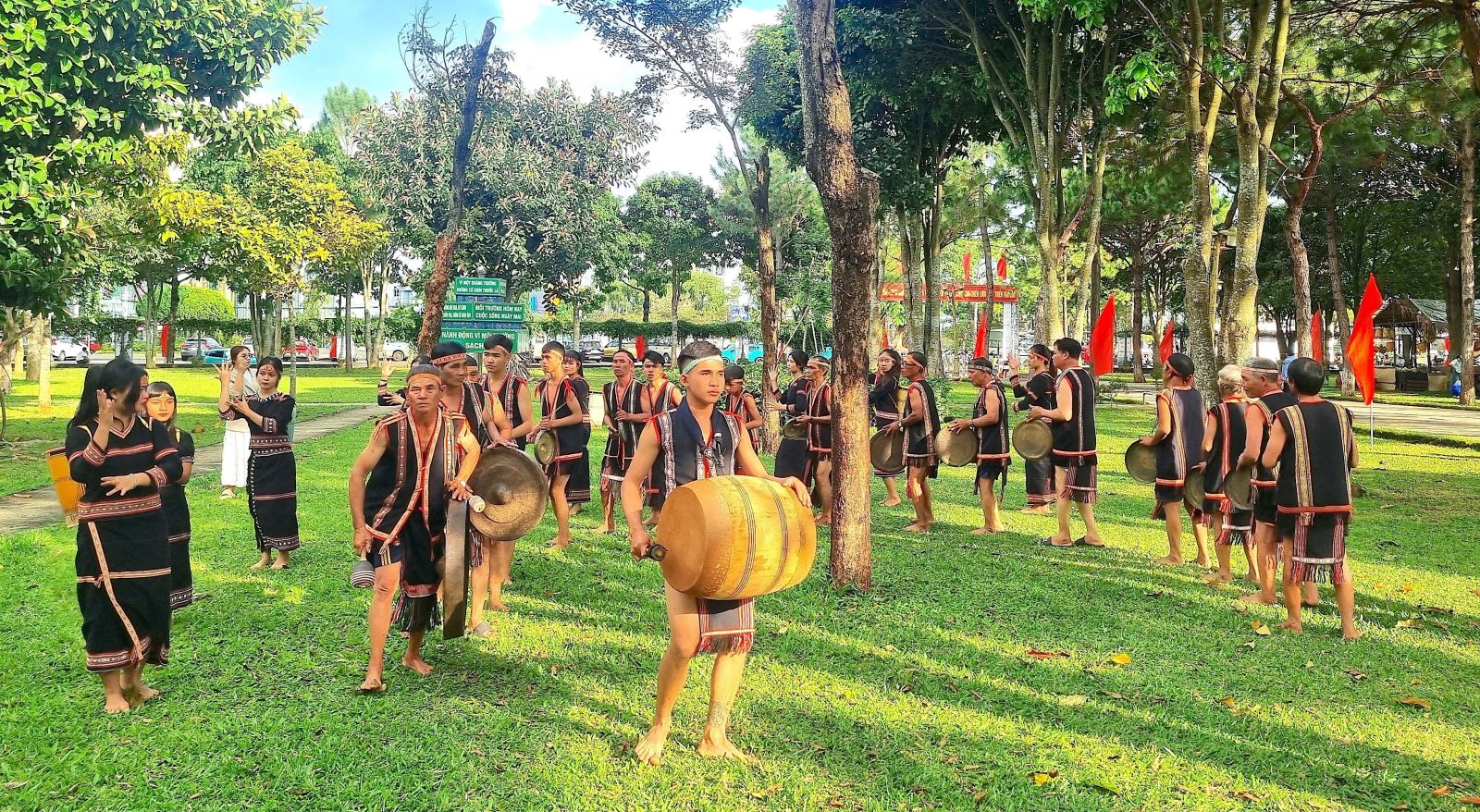
The solemn sound of gongs and cymbals and the graceful xoang dance are indispensable in the Cultural Heritage Festival. Photo: Quang Thai/VNA
The Draft Document shows that culture is placed at the center of the development model, both as a spiritual foundation and an endogenous resource and a regulator of growth. Vietnam aims to become a country that creates global cultural trends, combining Vietnamese values, flexible institutions and a creative community. Culture is shifting from “foundation building” to “force creation”, becoming soft power and the core driving force of sustainable development.
The Draft Political Report submitted to the 14th Congress identified the major orientation: "Building and developing an advanced Vietnamese culture, imbued with national identity, synchronously based on the national value system, cultural value system, family value system and Vietnamese human standards". This is a new development step in the Party's theoretical thinking, demonstrating a comprehensive vision and philosophical depth. The establishment of the four-layer value system not only has ethical and social significance but also serves as a foundation for planning and adjusting development policies. Culture is seen as a connecting factor, guiding the entire social life, orienting education, communication, politics and economics; at the same time, people are placed at the center as both the creative subject and the beneficiary, deciding the success of the goal of sustainable development and happiness.
The draft clearly states: "Effectively promote the cultural values and spirit of dedication of Vietnamese people so that culture truly becomes an endogenous resource, driving force and regulatory system for national development". The addition of the concept of "regulatory system" therefore has profound significance, affirming that culture not only goes hand in hand with development, but also directly controls, orients and maintains the pace of development, ensuring that the process of industrialization, modernization and digital transformation of the country is inseparable from the humanistic foundation, national identity and human goals.
“Effective preservation and promotion of cultural heritage values associated with heritage economic development” is a new highlight in the Draft, demonstrating a shift in the Party’s thinking on culture. Heritage is not only “an asset of the past” but also a resource for the future, linking conservation with creativity and development. For the first time, the concept of heritage economy is officially affirmed in a Party document, elevating heritage from a spiritual value to a socio-economic resource, in line with UNESCO’s “living heritage” and “creative economy” trends, towards sustainable development and improving the quality of life.
The Draft Political Report of the 14th National Congress emphasizes strengthening the “resistance” of culture, aiming to fight against all forms of “cultural invasion”, eliminate hybrid and outdated values, and refute arguments that distort history, culture, and revolutionary traditions. This concept complements “soft power”, creating an “immune system” of national culture. “Resistance” is not self-contained, but the ability to protect, renew, and adapt, preserve identity, select progressive values, and at the same time neutralize countercultural factors, ensure cultural security, social stability, and enhance national vitality in the context of globalization and digital space.
Regarding cultural institutions and policies, the Draft Document has mentioned the cultural development mechanism, but it needs to be clarified at the institutional level with specific and feasible solutions. Institutions are still a major bottleneck but also an important space for reform, when many correct policies and guidelines of the Party and State have not been institutionalized synchronously, leading to slow and inconsistent implementation, limiting the mobilization of social resources. The State needs to shift its role from "management and direction" to "creation, guidance and service", expanding the institutional space for innovation.
Experience from Singapore and South Korea shows that the “institutional sandbox” model, which is a limited policy testing space that helps test new models and technologies before widespread application, is very suitable for areas such as the creative and cultural industries. Vietnam needs to study this mechanism to encourage experimentation in culture, arts, and media, while ensuring risk control. At the same time, it is necessary to promote the public-private model, perfect the financial mechanism for culture, develop digital culture, and empower localities, especially in remote and isolated areas, towards a flexible, adaptive and development-creating institution.
Regarding human development and cultural environment, the issue of building a cultural lifestyle and preventing deviant behaviors in social behavior is receiving special attention. Phenomena such as domestic, school, and social violence have been eroding moral values, reducing compassion, and affecting people's trust. Therefore, cultural development needs to go hand in hand with economic development, considering the building of a healthy, humane, and progressive cultural environment as a central task, so that culture truly becomes a solid spiritual foundation, arousing the desire to contribute and spreading the spirit of compassion.
To do so, it is necessary to focus on developing Vietnamese people comprehensively, harmoniously combining intelligence, creativity, personality and ethics. Moral education , personality and life skills must become a consistent axis in the education system, especially in the context of a digital society. The draft needs to supplement the orientation of building a humane, honest, creative, disciplined educational environment, forming a generation of cultural citizens rich in knowledge and compassion.
The results of the last term show that Vietnam's HDI index reached 0.766 points, up 14 places, ranked in the high group; the happiness index increased 33 places, ranked 46/143 countries. However, it is necessary to supplement a system of quantitative indicators on happiness, cultural industry, creative capacity... to concretize human development goals and ensure transparency in assessment.
Regarding the development of cultural industry, heritage economy, and digital culture, in section IV on "Establishing a new growth model, restructuring the economy, promoting industrialization and modernization, taking science, technology, innovation and digital transformation as the main driving force", the draft sets out important directions when referring to the content of "developing cultural industry and heritage economy".
Next, in section V, the document continues to affirm more clearly the requirement of "Strongly developing cultural industry and cultural services to increasingly better meet the cultural enjoyment needs of the people". However, in the summary of the results of the previous term, the draft also frankly pointed out the reality that "Cultural industry, cultural services, and tourism development have not been commensurate with their potential". This shows that the gap between policy awareness and practical effectiveness is still significant.
Therefore, in the coming term of the Congress, deepening the role of culture in the new growth model is a strategic requirement. Culture is not only the spiritual foundation of society, but also an endogenous resource and sustainable driving force for the development of a knowledge-based economy and a creative economy. In the context of digital transformation that is comprehensively restructuring the economy, culture has the opportunity to become a dynamic economic sector, where creative values, knowledge and national identity are crystallized into products, services and cultural industries with great influence, contributing directly to GDP growth and national competitiveness.
In the context of knowledge, creativity and identity becoming economic capital, placing culture at the center of the growth model is both humanistic and an economic requirement. Vietnam possesses a rich treasure trove of heritage, art and indigenous values, but has not yet exploited them effectively. Culture needs to be integrated into the digital transformation and creative economy strategy to develop unique cultural industries, create quality jobs and enhance the national brand.
It is necessary to identify priority industries such as film, music, design, fashion, online games, cultural tourism and specific support mechanisms. At the same time, it is necessary to promote talent, protect intellectual property and encourage creativity, especially among the young generation, so that culture becomes an endogenous resource, promoting integration and sustainable development.
Thus, the upcoming 14th Congress with its carefully prepared documents, with many new points, has more clearly positioned the role of culture in the national development strategy. Some cultural contents in the Draft Document submitted to the 14th Congress need to continue to be supplemented, clarified and concretized in real life, to spread widely throughout society, from the central to local levels. Only when cultural orientations are truly put into practice, implemented with specific and synchronous actions, will awareness be transformed into strength, creating real, sustainable results, contributing to realizing the aspiration to develop a prosperous, civilized and happy country.
Source: https://baotintuc.vn/thoi-su/van-hoa-con-nguoi-trong-tam-nhin-dai-hoi-xiv-cua-dang-tu-nhan-thuc-den-hanh-dong-20251114093941876.htm






![[Photo] Unique architecture of the deepest metro station in France](https://vphoto.vietnam.vn/thumb/1200x675/vietnam/resource/IMAGE/2025/11/14/1763107592365_ga-sau-nhat-nuoc-phap-duy-1-6403-jpg.webp)
![[Photo] Unique art of painting Tuong masks](https://vphoto.vietnam.vn/thumb/1200x675/vietnam/resource/IMAGE/2025/11/14/1763094089301_ndo_br_1-jpg.webp)

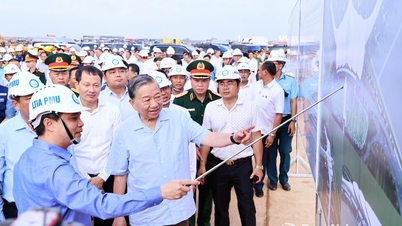

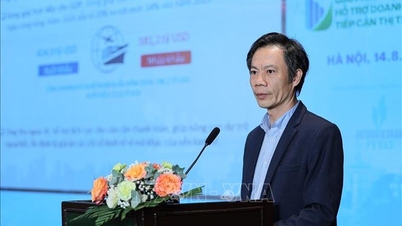
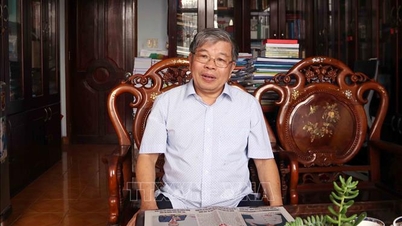
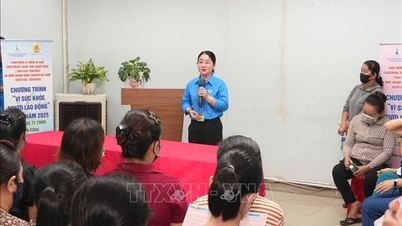
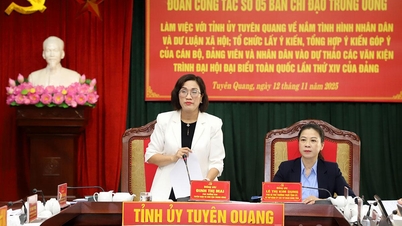

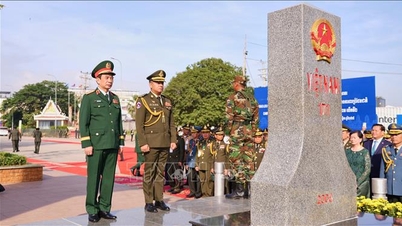




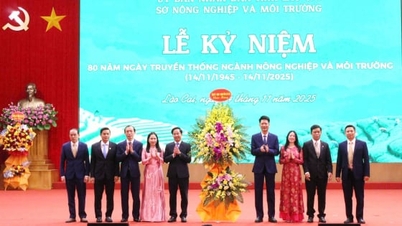





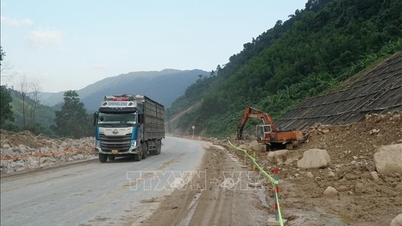
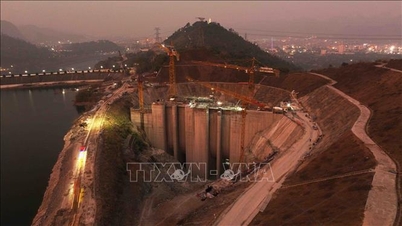
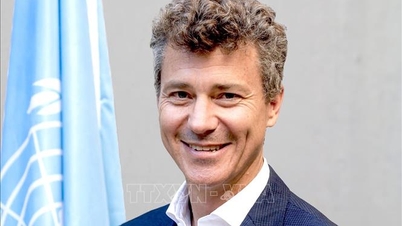
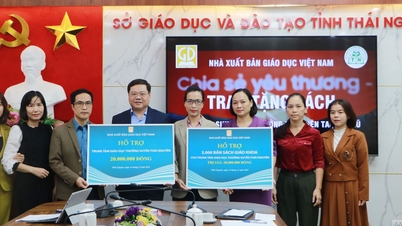
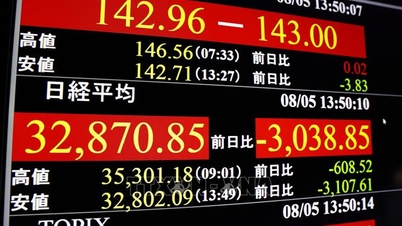
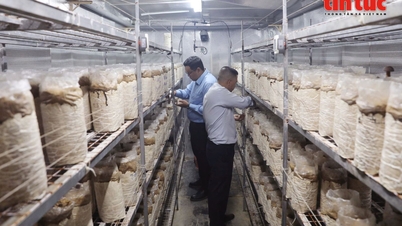
![[Photo] Special class in Tra Linh](https://vphoto.vietnam.vn/thumb/1200x675/vietnam/resource/IMAGE/2025/11/14/1763078485441_ndo_br_lop-hoc-7-jpg.webp)















































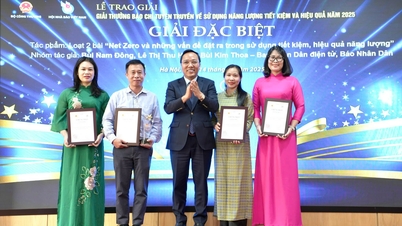

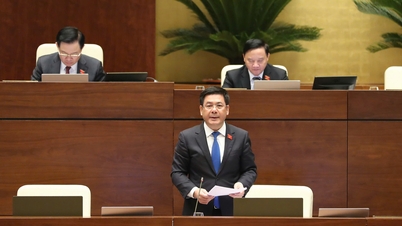

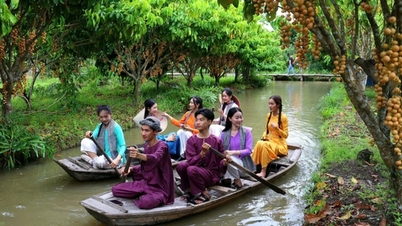

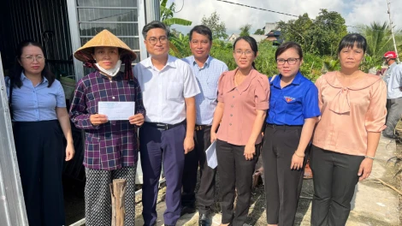

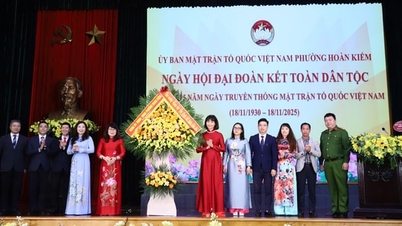





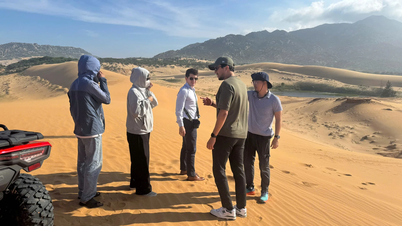












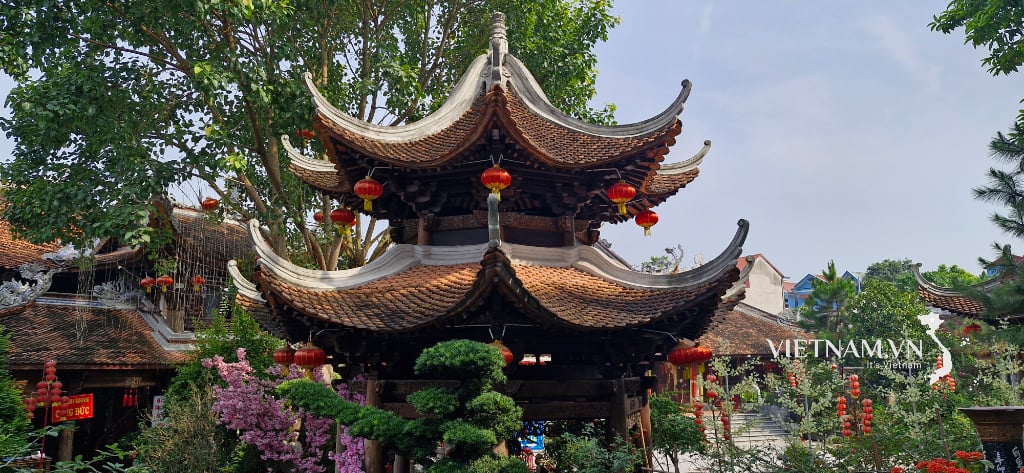
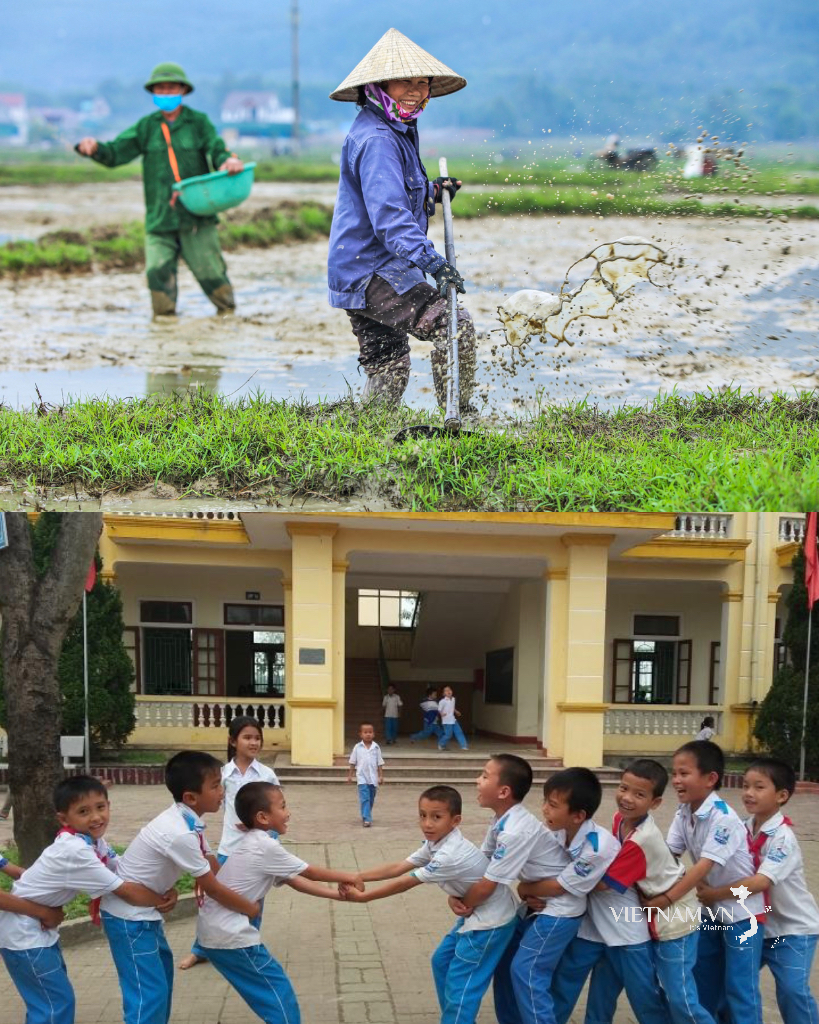
Comment (0)